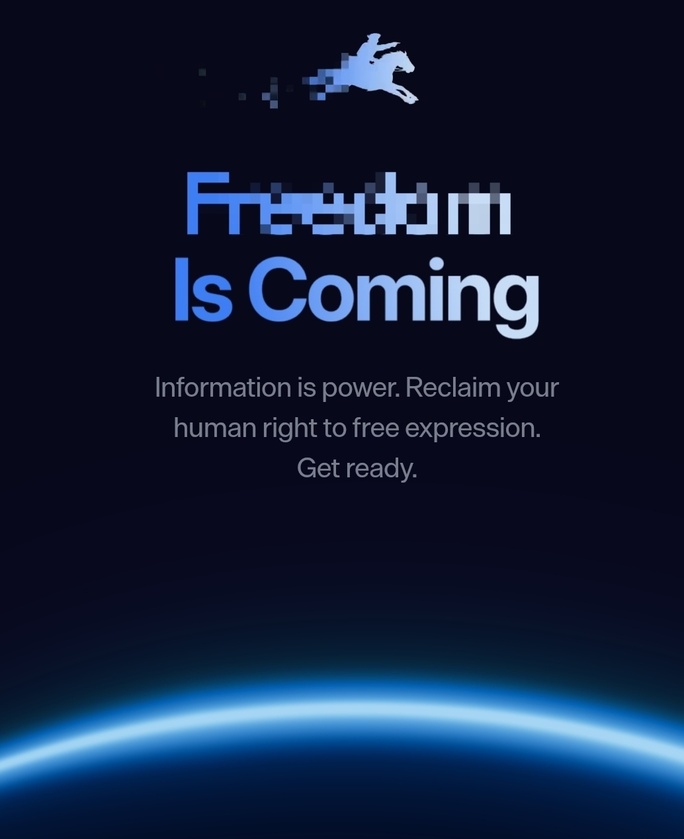Have you ever been in a sports league or played on a rec team? You wake up in the morning thinking about the big game coming and psyching yourself up for the big win. Nothing is going to stop you – you are pumped!
You think about all of the best players on your team, both offense and defense, then you start assessing the players on the other team and how you are going to out-maneuver them. Your team has built a solid strategy, run plays exceptionally together, you’ve won countless games and you know you got this in the bag. You are heading for the playoffs!
But then the coaches on the other team are informing everyone that they’ve already won, the news is spinning the same tale, and everyone is telling you that your team has lost even before the game began. People aren’t even planning on going to the game because they know the other team has already won – it’s all the buzz. Even your sponsors dropped you. People aren’t interested in cheering for the underdog because they are so distracted by the winners flooding them with information on how they beat everyone. You may as well not even play for there is no chance of winning – you will never make it to the playoffs – so you are told.
Suddenly you find yourself in doubt and start sizing up the players for defensive moves, and you feel drenched in defeat before the game even begins. Do you think you are going to win that game?
This is how the “you will own nothing and be happy” camp pump out their PR and marketing to serve their private equity and hedge fund masters. The art of false defeat is a powerful social engineering tool, and they use it well. They play both offense and defense. Team offense pushes out the fear-mongering and propaganda to get everyone worked up, in a panic, and believing they are totally defeated, while the private equity and hedge fund masters play defense, claiming none of it is true. Of course, no one is going to believe them so they hedge their bets on team offense. And, once this goes on long enough, team offense is no longer needed because the sheer defeat felt by people will naturally propagate more defeat while sounding the alarm and essentially becoming the “free-of-charge” marketing arm for the camp. We have all fed into this.
Similarly, the same camp manufactures both sides of catastrophes – swooping in to save the day. They are always playing both offense and defense with the goal of making people feel defeated.
This is what’s happening in the U.S. housing market. They want everyone to feel defeated, as though people already “own nothing and will be happy.” It’s a PR stunt that’s been ingrained in everyone’s head and widely used by the masses.
But the reality is, when it comes to the U.S. housing market, homeowners and small mom-and-pop investors are actually killing it! Everyone was told that BlackRock was buying up all of the homes in America, that the big institutional investors own it all, and there is no hope for our future, but this isn’t the case. This doesn’t mean that private equity firms aren’t pulling out all the tricks and trying to gobble up the housing market, or that you should take your eye off the ball, but it’s important to understand the true reality versus hyperbole.
After publishing my 42-page comprehensive report on “Who Really Owns The U.S. Housing Market? The Complete Roadmap” packed with hundreds of data points and charts, I ran 8 polls across social media platforms to see what people believed to be true. I already suspected the outcomes in advance, which is why I wanted to run these polls to make a point.
Between all 8 polls, across 3 social media platforms, 83-95% of people got every single one wrong.
This is what false defeat looks like.
Poll Results:
1) Who do you think owns the most single-family homes in the U.S.?
Homeowners 10%
Mom-and-Pop Investors 3%
Institutional Investors 87%
90% got it wrong
The correct answer is Homeowners, then mom-and-pop investors, and last is institutional investors. The institutional investors account for those who own 100+ single-family homes. Mom-and-pop investors own between 1-19 homes and that includes the 6.5 million second-homeowners. The mid-size investors own between 20-99 homes and only account for 5% of purchases of existing single-family homes while the institutional investors only account for 2%. Mom-and-pops sit at 18% of purchases. See my full report for details on who owns what, how many, and an endless trail of other statistics.
2) What percentage of American homeowners own their home outright and are mortgage-free?
10 – 19% – 69%
20 – 29% – 18%
30 – 40% – 13%
87% got it wrong
As of 2022, 39.28% of homeowners owned their home outright, mortgage-free, with no liens. This is an increase of 6.5% since 2010. That’s nearly 40%!
3) How many single-family homes do you believe BlackRock has purchased?
0 – 2,500 – 5%
2,501 – 5,000 – 5%
5,001 – 10,000 – 90%
95% got it wrong (and possibly more)
The answer is zero. BlackRock hasn’t purchased any homes. They do not purchase single-family homes. Instead, they invest for their clients in the build-to-rent single family communities, in building companies, building material companies, multifamily properties, and mortgage securities. They’ve invested $120 billion into U.S. residential real estate. That said, they are the top shareholder in companies covering nearly every sector of the housing industry which gives them powerful voting rights and control to dictate the operations of a company, which gives them a monopoly and everyone can agree on, is not good. To see who IS buying up single-family homes to rent, read the full report.
4) From which foreign country do you think individuals & investors have purchased the most U.S. residential properties over the past 14 years?
India – 11%
China – 81%
Canada – 8%
92% got it wrong
The correct answer is Canada. The top five are Canada, China, Mexico, India, and the UK. Other investors are from Colombia, Brazil, Germany, Cuba, and Israel.
5) There are over 43,000 manufactured & mobile home communities across the U.S. What % do you think mom-and-pop investors own vs big investors and corporations?
Mom-and-Pops own:
25 – 45% – 70%
46 – 65% – 17%
66 – 85% – 13%
87% got it wrong
The mom-and-pops are killing it in this sector, holding 75% ownership. 25% is owned by a combination of private equity firms, hedge funds, and big corporations. Over 21 million Americans live in these communities and the private equity firms have no mercy on these people. Read the report to see what firms are buying them (such as Blackstone and the Carlyle Group) and Fannie and Freddie’s involvement.
6) What percentage of Americans do you think are homeowners as opposed to being renters?
40 – 55% – 70%
56 – 70% – 17%
71 – 85% – 13%
83% got it wrong
65.6% of Americans are homeowners. The homeownership rate has toggled between 62.9% and 69.2% dating back to 1965.
7) Foreigners own approx 43.4 million acres of 878 million acres of U.S. Farmland. Investors from which foreign country own the most U.S. farmland by a long shot?
Netherlands – 1%
Canada – 7%
UK – 5%
China – 87%
93% got it wrong – way wrong
Canada owns 32% of the 43.4 million acres of U.S. farmland, the Netherlands 12%, Italy 6%, UK 6%, Germany 5% and China owns less than 1%. China is often used as a propaganda scapegoat of sorts. The big investors need to create an enemy for people to focus on so that people aren’t paying attention to the billionaires like Bill Gates or the institutional investors who are buying up farmland.
8) The U.S vacation rental market is over $17.5 billion and half the rentals are single-family homes. Who do you think dominates this market?
Individual & Small Investors – 13%
Investors with 20-99 units – 9%
Big Investors with 100+ units – 78%
87% got it wrong
Once again, individuals and the small mom-and-pops rule this market, holding 70% of it. The mid-size investors hold 20% and the big institutional investors only hold 10% of the market.
Still Feel Defeated?
This isn’t to paint a picture that everything is all hunky-dory in the housing market, because private equity firms are on a fast track to build up single-family rental home communities, continue to build out multifamily homes, and expand on student housing, while they keep their sites on the manufactured housing communities. The big investors such as BlackRock, Vanguard, and State Street most certainly have a seat at the table for voting rights and dictating how a company should operate, in many sectors of the housing industry. There is no doubt about it – these guys are trying to monopolize the real estate market and all assets, but they want you to feel defeated and paralyzed from making decisions, from buying or investing, and from seeing that they are not all-powerful.
On top of that, many states are jacking up property taxes, homeowners insurance, and of course general inflation across the board. Everyone is feeling the squeeze.
However, homeowners and mom-and-pop investors dominate the single-family sector, vacation rentals, and the manufactured housing communities, with over 65% being homeowners as opposed to renters, and nearly 40% own their homes outright. When you read my full report, you will see how significant this is. There are nearly 100 million single-family homes (attached and detached) and investors, including the mom-and-pops (the largest bracket), only own less than 15 million. Furthermore, China does not own all of our farmland! They own less than 1% of all foreign-owned U.S. farmland. There are so many misconceptions out there, which is why it’s vital for people to review all of the actual numbers throughout this report.
The Reality of “Owning”
Many people will say that even those who own their homes outright and have the deed in their hand don’t really own their house because if they don’t pay their property taxes, their house can be seized. Whereas, I do agree that property taxes are unconstitutional and like a form of extortion, I don’t know that I agree with the blanket statement that they therefore do not own their homes. We could apply that same theory to almost any of their “systems.” Let’s take cars for example. Let’s say you pay for your car outright with cash. You now own the title. But in order to drive it you have to pay for a license plate renewal sticker, get emissions tests, and carry insurance. If you neglect to do any of those things and get caught out on the road, your car could be impounded. The only way to get it back is to pay fines and deal with the courts. So did you ever really own it? Sure, if you play by their rules and pay their fees.
What about having a dog or a cat as a pet? You buy or adopt the pet, get the papers, and officially own the pet. But what happens if you don’t follow the rules of having to get an abundance of rabies shots? Most vets, groomers, and pet shops won’t even give you access to their services, and if your dog gets attacked by another dog and animal control is called and they find out your dog doesn’t have its rabies, they can take your dog away. So was the dog ever truly yours to begin with? Only if you play by their rules and pay their fees.
One last example, and a very important one, is banking. You put the money that you own in a bank, but the bank charges fees for various services and many banks won’t let you take out more than $5,000 of your money, at a time. You have to put in an order to extract more out. What if there was an emergency and you are forced to wait as long as a week to get the money you “own” out of their bank? They are in the process of trying to move to a digital currency world and have already illustrated ways they can control your access to your money and how you spend it, which I have covered extensively. Are you going to extract all your cash out of the bank or are you going to risk keeping what you “own” in their system? If you do hand it all over to them, with all of the above conditions and possibilities, are you declaring that you do not “own” your money? So then, if this digital currency locks into place one day and they have control over how you spend your money and lock you out of your account, are you just going to let your money go because you are declaring that you don’t “own” the money anyway since they have imposed these restrictions on you? Or is this any different than the imposed property taxes to maintain the deed to your home you own?
Listen, if you haven’t realized by now that the global mafia (see my “Who is They” article) takes a slice of the pie in every single industry, and designed it that way, then you’re not paying attention. This doesn’t make it right, and that’s why so many people are battling against them and their systems they’ve put in place. But the bottom line is – you either focus on the positive and take action where you can, or you live in defeat and choose to see everything as doom and gloom. If you own your home and want to relinquish your ownership and claim to the world that your deed is meaningless because you have to pay property taxes, then live in defeat.
The fact of the matter is, while we are here in our short journey on planet earth, do we really technically own anything or do we claim ownership, buy and sell, move things around, play in their systems, and leave all material possessions behind when we leave this planet? Much of it is a matter of perspective. So in our short time here you can choose to live in defeat and feel that this global mafia has you by the balls, or you can appreciate the positive things and opportunities that come into your life and project that positivity outward so as to reject the negative BS trying to steamroll you. You can also come up with solutions, and there are many throughout this site. Bottom line – It’s a choice. Everything is a choice, and when you start claiming you have no choices, then you are playing into their victimhood scheme to keep you defeated.
The Point of This Article
We have far more skin in the game than they want you to believe. In fact, homeowners and mom-and-pop investors are the majority.
It’s critical to get to the truth and understand the actual numbers, rather than believing everything you hear or read. Sometimes our emotions get the best of us and when we know what these people are capable of it makes it really easy to believe propaganda at times. But we must stay focused and see the opportunities before us rather than just the gloom. There are opportunities for individuals and small mom-and-pop investors to expand on their skin in the game instead of accepting a totally false defeat. People can start taking action now on a local, state and federal level to squeeze out the monopolies of big investors. Use their game against them. They wanted this propaganda out there to put people in a state of fear, so instead, use the actual facts in this report to show your state representatives how these private equity firms are pulling rental increases, evictions, and other stunts to try to buy up real estate. The topic is already primed.
Recently in Maine, tenants of a mobile home community pooled together to buy their property so that big investors wouldn’t come in and snatch it up. New York, Connecticut and Maine have all passed laws allowing tenants of manufactured home communities to buy the land on which their mobile homes sit so that investors don’t buy them up, raise their rent, and give them the boot. This is a huge win and should inspire others to follow suit!
Whether you are looking to buy, sell, rent, invest, relocate, or just want to keep your eye on the ball, this report will act as a roadmap, showing where individuals, mom-and-pop investors and large investors monopolize different sectors of the housing industry and where the hot locations are. It is packed with hundreds of statistics and charts to provide both context and visual aids for a comprehensive view of how the landscape of America is shifting.
This is the most comprehensive report out there today and it’s free to read right here! It’s also available in pdf format in The Bookshop.

The Complete Roadmap:
• Single-Family Homes and The Rental Market: Homeowners Versus Investors
• The Top 6 Companies That Own Single-Family Home Rentals
• Build-To-Rent Single-Family Home Communities
• Foreign-Owned U.S. Residential Property
• Manufactured Housing Communities
• Vacation Rental Homes Market
• Student Housing Market
• The Affordable Housing Scheme
• Private Equity and Large Investors
• The Biggest Takeaways – Stats and Suggestions
READ the full report and share it with your family, friends, co-workers and across social media so that people know the facts and can make better decisions for themselves and their families.













 All while Pfizer—a company with a $2.3 billion criminal fine for fraudulent marketing, bribery, and kickbacks—was given blanket immunity from liability and billions in taxpayer dollars to produce a vaccine in record time with no long-term safety data.
All while Pfizer—a company with a $2.3 billion criminal fine for fraudulent marketing, bribery, and kickbacks—was given blanket immunity from liability and billions in taxpayer dollars to produce a vaccine in record time with no long-term safety data.
























